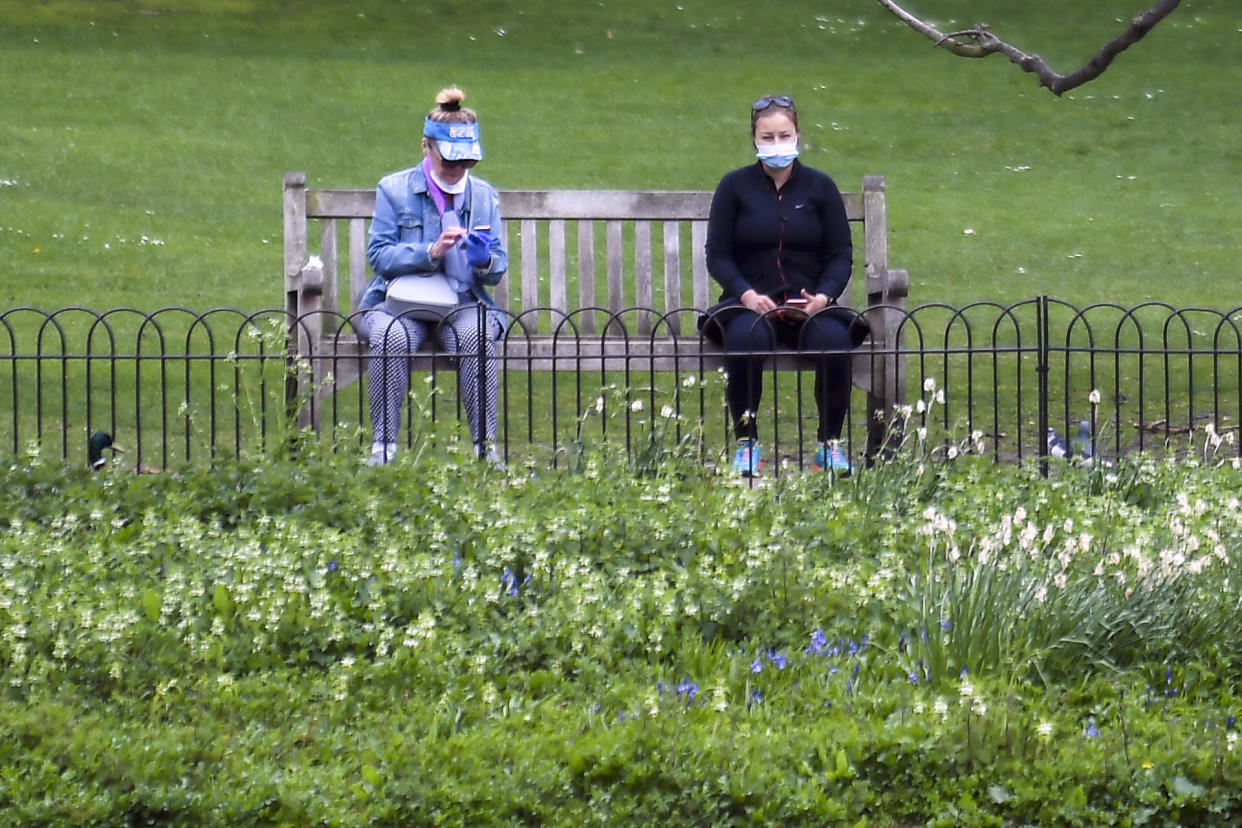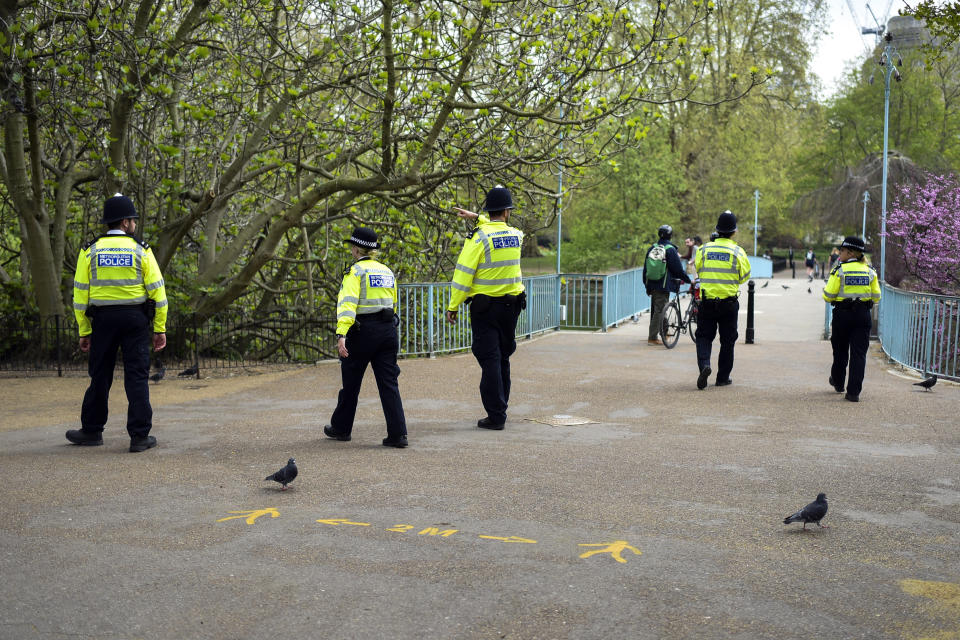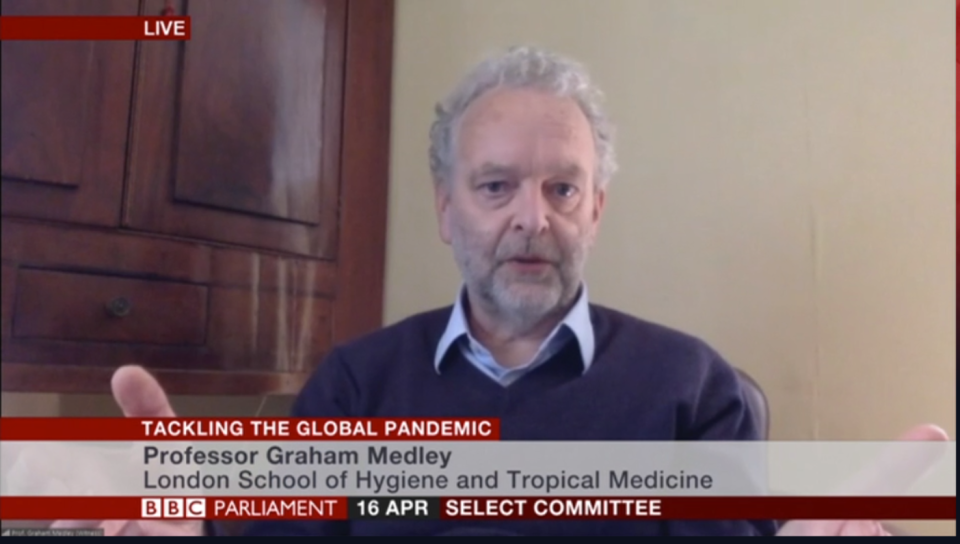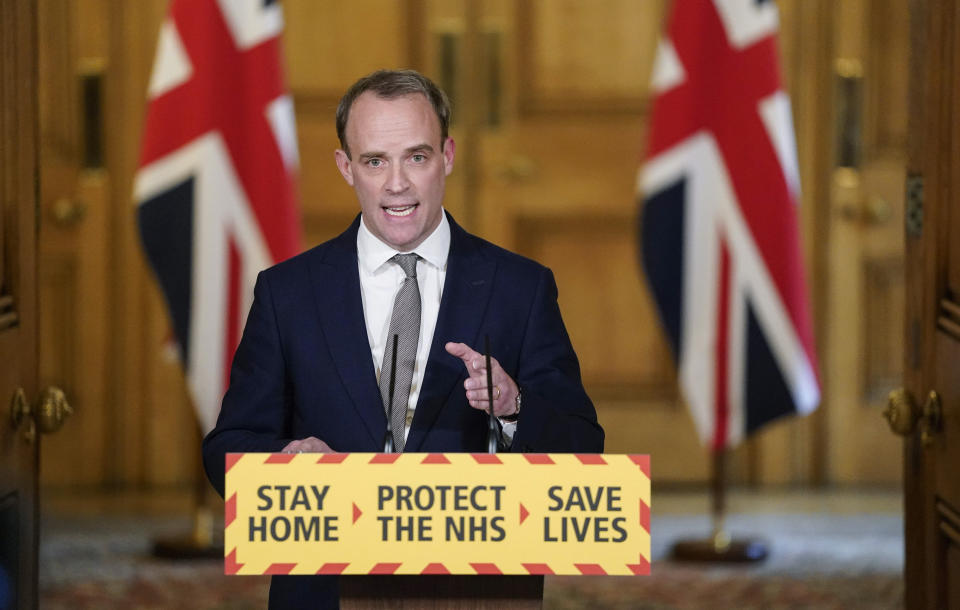Coronavirus: Lockdown stopped 'around 800,000 dying within six months', says key government adviser

A key government adviser has said coronavirus lockdown measures in the UK are working - and that they have stopped “800,000 people from dying within six months” from the virus.
On Thursday, the government’s Live Sciences Committee, chaired by Greg Clark, asked questions of how technology and science were helping in the fight against the COVID-19 outbreak in the UK.
Professor Graham Medley, of the London School of Hygiene & Tropical Medicine, said that if the country had gone into lockdown earlier in mid-January, “we might have had very few cases”.
A previous prediction claimed that “800,000 could die in six months” if adequate precautions had not been taken at all.

But when Medley was pressed on whether the current restrictions - brought into place on March 23 by Boris Johnson - had saved the NHS from becoming overwhelmed, he replied, “Oh absolutely”.
He continued: "It was very clear early on that... so we have a preparedness document, which was renewed in 2018 and was first published in 2009.
Latest coronavirus news, updates and advice
Live: Follow all the latest updates from the UK and around the world
Fact-checker: The number of COVID-19 cases in your local area
6 charts and maps that explain how coronavirus is spreading
“And this document lays out what we call a ‘reasonable worst case planning assumption’ which results in large numbers of deaths - 800,000 people dying in the space of six months.

“And it was clear early on that although this particular virus might not reach those kinds of levels it was certainly in the same ball park.
“With almost complete certainty we had say that had nothing been done then we would now be in the middle of an epidemic of that kind of proportions.”
Clark then asked: “In terms of the adherence to the measures, is it beyond what you expected, or what you modelled what was predicted?”
Medley replied: “Well to my knowledge this has never been done before, its very hard to model something that’s never been done before.
“I think had people tried to submit publications suggesting that everybody stay at home, it would have been rejected as unreasonable and that it would never happen. So we had no expectations, we can use the modelling to tell us if - but with no previous experience of this - the models can’t tell you what will happen without making a very strong assumption about the impact of these measures.”
On Thursday, the Government announced it will keep lockdown measures in place for “at least” another three weeks.

First secretary of state Dominic Raab said that social distancing restrictions would be extended as the infection rate had “not been brought down as far as it needs to be”.
Following a meeting with SAGE (Scientific Advisory Group for Emergencies), he said any relaxing of social distancing measures would threaten to bring a second peak of the outbreak to the country.
Raab said: "Any change to our social distancing measures now would risk a significant increase in the spread of the virus.
"That would threaten a second peak of the virus and substantially increase the number of deaths. It would undo the progress we've made to date and, as a result, would require an even longer period of the more restrictive social distancing measures."
Across the UK, new coronavirus deaths rose by 861 in 24 hours on Thursday – bringing the death toll from 12,868 to 13,729, according to the Department of Health (DoH).
The Department of Health also confirmed that, as of 9am on 16 April, the total number of positive coronavirus cases had reached 103,093.
Coronavirus: what happened today
Click here to sign up to the latest news, advice and information with our daily Catch-up newsletter


